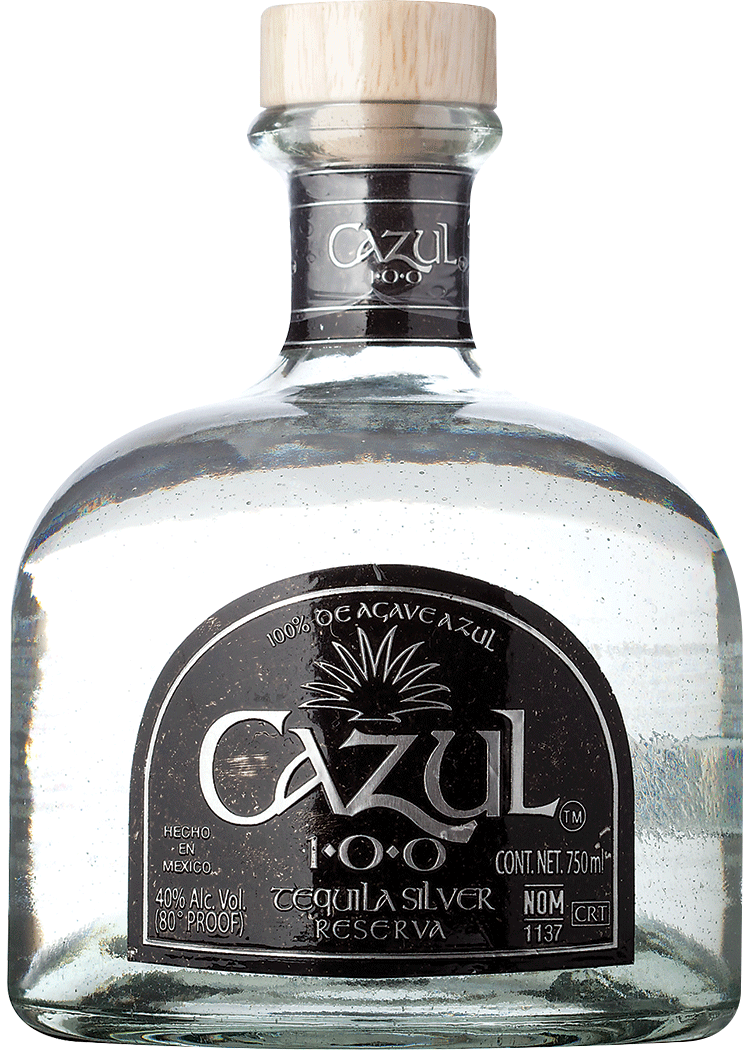tap to enlarge
Cazul 100 Silver Tequila
375ml
Product Highlights
Mexico- 100% blue agave in its truest form. Clear and unaged with aromas of citrus, peppers, intense blue agave flavor and natural sweetness. Great as a chilled shot or in a top shelf margarita. Silver Medal - San Francisco Spirits Competition.
RichCitrusAgave
Product Details
Category
Category
Tequila may have a wild and crazy reputation, but this unique spirit is created according to strict guidelines, guaranteeing authenticity and consistency. It’s distilled from the fermented juice of the Weber blue agave plant, and comes only from a specified region of Mexico, centered around the western state of Jalisco.
Tequila production begins with the agave plant, cultivated in Mexico’s desert regions. Early civilizations believed agave was a gift from the gods, which they used as a source for food, fibers and building materials. They would cut off the top of the plant, and the remaining stump filled with a liquid called aguamiel that would ferment into a cloudy, low-alcohol drink.
The Spanish introduced distillation to Mexico in the 1500s. The technique, used on aquamiel, produced the spirit they dubbed vino mezcal de Tequila. Mezcal was soon being made across Mexico, though the colony’s rulers in Spain intermittently banned production of the spirit when they wanted to encourage imports from Spain and hiked taxes on it when money was needed for public projects.
Spain lifted the ban for good in 1792, and in 1795 gave a license for the production of tequila to Jose María Guadalupe de Cuervo, maker of what is now the world’s best-selling tequila, Jose Cuervo.
Producers continued making mezcal with Mexico’s many agave species, but it became clear that one particular plant delivered the best spirits. In 1902, Alsace-born botanist Frédéric Albert Constantin Weber classified this species as Agave tequilana Weber azul, or Weber blue agave.
Like wine and other unique spirits, tequila is produced according to regulations that govern its appellation of origin. Tequila may only be made in the state of Jalisco, which includes the town of Tequila, and parts of the surrounding states of Guanajuato, Michoacán, Nayarit and Tamaulipas. It must be made from blue agave and in accordance with additional rules for ingredients and aging. Spirits made using other agave species or elsewhere in Mexico are classified as mezcal.
The blue agave plant can reach eight feet in height and matures at around six years old. Sugars collect in the core of the plant, the piña. Producers chop up the piñas and cook them in large ovens, then press the juices from the cooked pieces and ferment them with yeast. This blue agave juice may make a 100 percent agave spirit, or the producer may add up to 49 percent non-agave sugars, such as sugar cane or corn sugars, to make a “mixto” or “regular” tequila.
The fermentation length, temperature and yeast affect the development of flavor compounds or congeners that produce a specific tequila style. Some producers add piña fibers called bagasse to the fermentation vessel to enhance the complexity of the spirit. Regulations demand that tequila be double-distilled in pot stills, or produced with a continuous still that has at least two columns.
Tequila may be bottled without maturation or aged in oak barrels. The length of aging determines how it is labeled: Colorless blanco or silver tequila is aged fewer than two months in oak; reposado between two and 12 months; añejo for more than one year. Extra añejo is a category added in 2006 that includes tequila aged at least three years in oak vats under 600 liters. Generally, the longer tequila ages in oak, the smoother and more full-bodied it becomes.
A tequila labeled simply “gold” or “joven” is unaged, possibly with caramel coloring or other sweeteners added.
Consider how you’ll use your tequila before you shop. For shots or blender drinks, a young, clean-tasting tequila can be a smart buy; for mixed drinks that showcase tequila flavor, or for sipping as an after-dinner drink, consider older, smoother styles.
